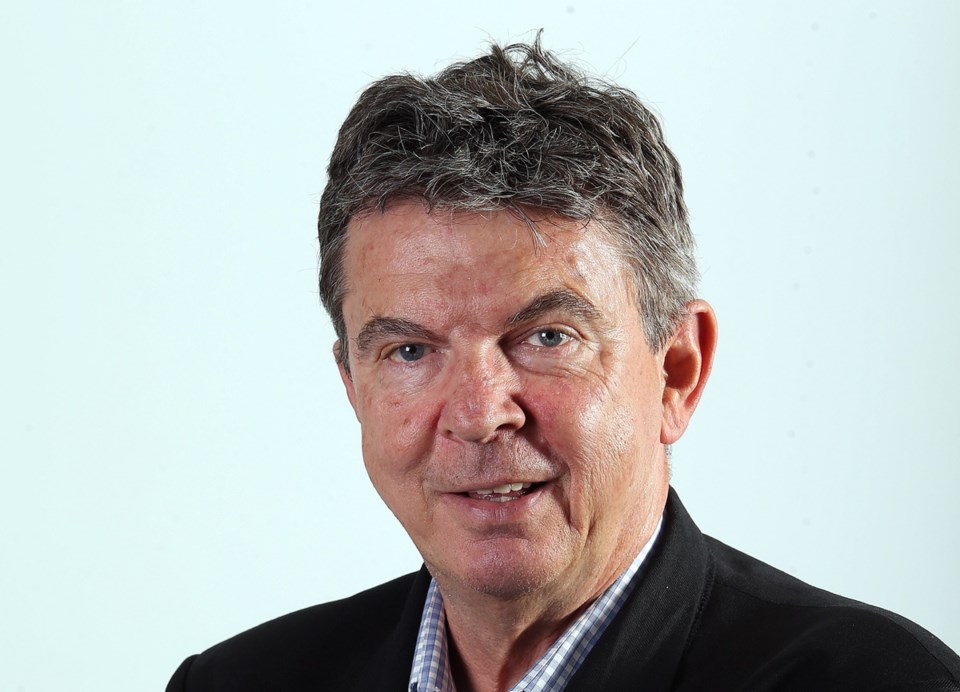 Something that Social Development Minister Michelle Stilwell said in the heat of the moment this week sparked a belated realization.
Something that Social Development Minister Michelle Stilwell said in the heat of the moment this week sparked a belated realization.
Under fire for the bus-pass costs she’s imposing on disabled people, which will eat up most of the income assistance increase they’ll be getting, she said: “I’ve lived it. I’ve been there. I’ve been on income assistance, so don’t tell me I don’t understand, because I do.”
It was a striking scene. A quadriplegic minister was under fierce attack by an Opposition that ganged up on her for 20 minutes, as they would on any minister caught in a jam. The only consideration given was that she didn’t have to stand up to answer the questions. Because she can’t.
Her revelation suggests that her route to a cabinet post was even more difficult than you’d imagine. How slim the chances must have looked back then, of a young woman in a wheelchair and on assistance becoming a cabinet minister.
But she’s not the only person who faced long odds against joining the elected club of 85 people chosen to represent B.C. The range of diversity, by all measures, in the 2016 legislature would amaze people from years gone by. And so would the openness that this motley group has adopted when it comes to acknowledging all their different life stories.
The hallways of the legislature are hung with group photos of legislators going back decades. Most of them are what you’d expect — several dozen white men in suits. The obvious change over the past few generations is the increasing number of women. Thirty-eight per cent of the house is now women, led of course by a female premier (with a female deputy).
But there is a more profound change. The backgrounds of modern-day politicians are much more diverse. The range of challenges that many of them faced, even before they set out to win election, look to be a lot more varied than those faced by the men in those old photos.
The old white men of history get dismissed these days retroactively for having been so entitled. It might not be entirely fair. Maybe the old boys’ club of lawyers and upstanding community figures endured their own problems, coped with challenges and stayed quiet about them. Personal lives were much more private in the old days. People are much more open about their lives now, including politicians.
And the life stories of people in the current legislature leave the strong impression that their backgrounds are much more varied.
Here’s a sampling of their stories. I include no names, although they’re easy enough to figure out, because it’s the collective picture that strikes me, more than the individuals’ detailed histories.
• Another cabinet minister grew up in an abusive home filled with violence and bounced around with different family members after his parents split, living on income assistance in motels for a time.
• There’s an aboriginal woman MLA whose childhood with a volatile alcoholic mother is simply a horror story. Who would have pictured that abused native girl growing up to become an MLA?
• There’s a handful of gay or lesbian MLAs whose orientation is about as remarkable as their hair colour, by which I mean, not at all. But I doubt it made it any easier for them in the early going. And I doubt that any of the old boys on the hallway walls saw this coming.
• Three MLAs roll around the building in wheelchairs. Two of them are cabinet ministers, which adds another level of complexity to their lives. The other led the City of Vancouver for three years, among many other achievements.
But their situations are considered old news. It’s been 33 years since an MLA in a wheelchair (Doug Mowat) was considered a social breakthrough.
• One MLA’s parents were uprooted and placed in an internment camp during the war as teenagers because they were of Japanese ancestry. Four years ago, the father came to the same house that applauded that move, to watch his daughter applaud an apology.
There are cancer and cardiac survivors, people with other difficult family circumstances and various other stories of challenges overcome.
In short, a lot more people these days can look at the legislature and say: “They’re just like us.”


